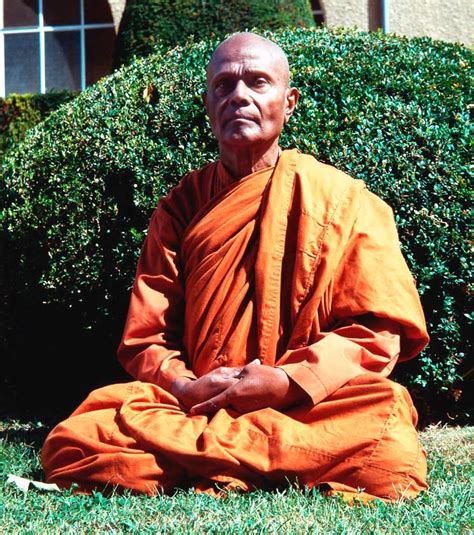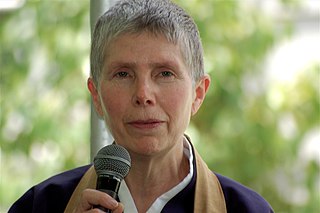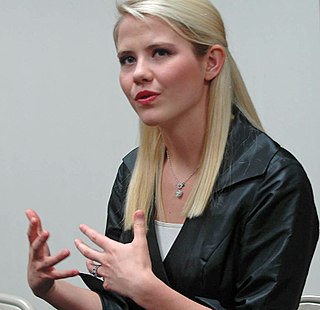A Quote by Henepola Gunaratana
Mindfulness helps us freeze the frame so that we can become aware of our sensations and experiences as they are, without the distorting coloration of socially conditioned responses or habitual reactions.
Related Quotes
The problem is not in the food... The problem lies in the mind. It lies in our lack of awareness of the messages coming in from our body... Mindful eating helps us learn to hear what our body is telling us about hunger and satisfaction. It helps us become aware of who in the body/heart/ mind complex is hungry, and how and what is best to nourish it.
We begin to change the dynamic of our relationships as we are able to share our reactions to others without holding them responsible for causing our feelings, and without blaming ourselves for the reactions that other people have in response to our choices & actions. We are responsible for our own behavior and we are not responsible for other people's reactions; nor are they responsible for ours.
A person is alive only to the degree that he or she is aware. To make the most of life we must constantly strive to be aware of the importance of being aware. Be aware of your senses and use them: So often we are distracted and unconscious of the riches our senses can pour into our lives. We eat food without tasting it, listen to music without hearing it, smell without experiencing the pungency of odors and the delicacy of perfumes, touch without feeling the grain or texture, and see without appreciating the beauty around us.
No individual can be in full control of his fate-our strengths come significantly from our history, our experiences largely from the vagaries of chance. But by seizing the opportunity to leverage and frame these experiences, we gain agency over them. And this heightened agency, in turn, places us in a stronger position to deal with future experiences, even as it may alter our own sense of strengths and possibilities.
As you are aware, no perceptions obtained by the senses are merely sensations impressed on our nervous systems. A peculiar intellectual activity is required to pass from a nervous sensation to the conception of an external object, which the sensation has aroused. The sensations of our nerves of sense are mere symbols indicating certain external objects, and it is usually only after considerable practice that we acquire the power of drawing correct conclusions from our sensations respecting the corresponding objects.
Lots of people look for happiness through sensations, whether it's through sex, the taste of food, the sound of music, the sensations of movies and plays, creating a certain environment in their home, and so on. Looking for happiness through sensations keeps you constantly searching for the next "fix" and for more varied sensations. Sensations become addictions, and nothing is ever enough.




































